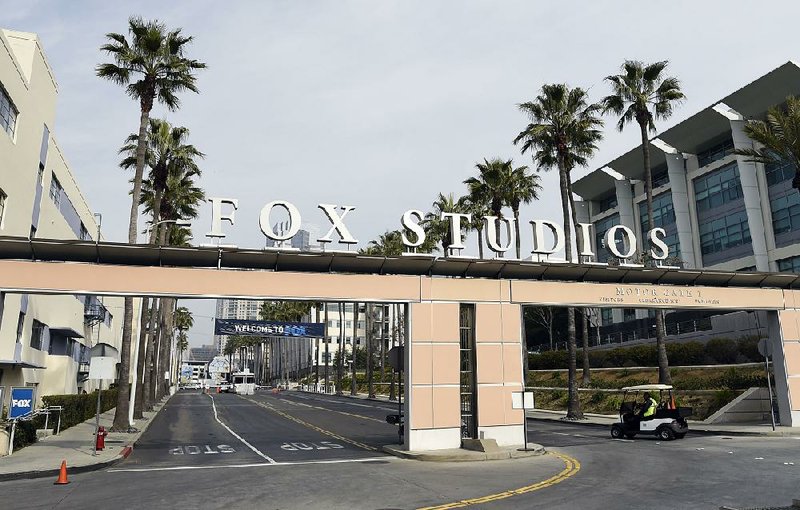Disney has closed its $71 billion acquisition of Fox's entertainment business, putting Cinderella, The Simpsons, Star Wars and Dr. Strange under one corporate roof.
The deal is likely to shake up the media landscape. Among other things, it paves the way for Disney to launch its streaming service, Disney Plus, due out later this year. It will also likely lead to layoffs because of duplication in Fox and Disney film-production staff.
By buying the studios, Disney aims to better compete with technology companies such as Amazon and Netflix for viewers' attention -- and dollars.
Disney needs compelling TV shows and movies to persuade viewers to sign up and pay for yet another streaming service. It already has classic Disney cartoons, Star Wars, Pixar, the Muppets and some of the Marvel characters. With Fox, Disney could add Marvel's X-Men and Deadpool franchises, along with programs shown on such Fox channels as FX Networks and National Geographic. Fox's productions also include The Americans, This Is Us and Modern Family.
The deal helps Disney further control TV shows and movies from start to finish -- from creating the programs to distributing them through television channels, movie theaters, streaming services and other ways people watch entertainment. Disney would get valuable data on customers and their entertainment-viewing habits, which it can then use to sell advertising.
Disney Chief Executive Officer Bob Iger said in an earnings call in February that Disney Plus and other direct-to-consumer businesses are Disney's "No. 1 priority."
Cable and telecommunications companies have been buying the companies that make TV shows and movies to compete in a changing media landscape. Although Internet providers like AT&T and Comcast directly control their customers' access to the Internet in a way that Amazon, YouTube and Netflix do not, they still face threats as those streaming services gain in popularity.
AT&T bought Time Warner last year for $81 billion and has already launched its own streaming service, Watch TV, with Time Warner channels such as TBS and TNT, among others, for $15 a month.
In addition to boosting the Disney streaming service, the deal paves the way for Marvel's X-Men and the Avengers to reunite in future movies. Though Disney owns Marvel Studios, some characters including the X-Men had already been licensed to Fox.
Disney also gets a controlling stake in the existing streaming service Hulu, which it plans to keep operating as a home for more general programming. Family-friendly shows and movies will head to Disney Plus.
No pricing has been disclosed for Disney Plus. The streaming service will feature five categories of material: Disney, Pixar, Marvel, Star Wars and National Geographic. Disney charges $5 a month for ESPN Plus, a service that offers programming distinct from the ESPN cable channel.
Meanwhile, Fox Corp. -- the parts of 21st Century Fox that are not part of the deal, including Fox News, Fox Sports and Fox Broadcasting -- started trading on the Nasdaq under the "FOX" and "FOXA" tickers on Tuesday.
In a note to employees Wednesday, Iger said management has spent the past year studying how to integrate the companies and that the process would be "an evolution," with some businesses affected more than others.
"I wish I could tell you that the hardest part is behind us," he wrote. "We're committed to moving as quickly as possible to provide clarity regarding how your role may be impacted."
The deal is one of the most dramatic in the current wave of entertainment-industry mergers, shrinking the number of major Hollywood studios to five from six and putting the irreverent Homer Simpson and Family Guy in the same stable of cartoon characters as Mickey Mouse and Donald Duck. The closing follows a nearly two-year effort that included a bidding war and regulatory compromises around the world.
Underscoring the looming human cost, Disney is taking on 15,400 Fox employees, while the smaller new Fox Corp. will keep about 7,000. Last August, executives at Burbank, Calif.-based Disney said they'll achieve their targeted savings over two years, with the U.S. operations bearing the brunt early on. The Hollywood Reporter said last month that 4,000 jobs will be lost.
"You can anticipate more domestic at the front end, just because of regulatory issues outside of the U.S.," Chief Financial Officer Christine McCarthy said on the August call. In other words, it will be easier to cut workers at home first.
Already the largest entertainment company in the world, Disney emerges with more clout to negotiate everything from the fees it gets from cable TV operators to the share of ticket revenue at movie theaters. The sale represents the end of an era for Rupert Murdoch, the 88-year-old media mogul who steered the Fox studio for nearly four decades.
Information for this article was contributed by Mae Anderson of The Associated Press and by Christopher Palmeri and Anousha Sakoui of Bloomberg News.
Business on 03/21/2019
